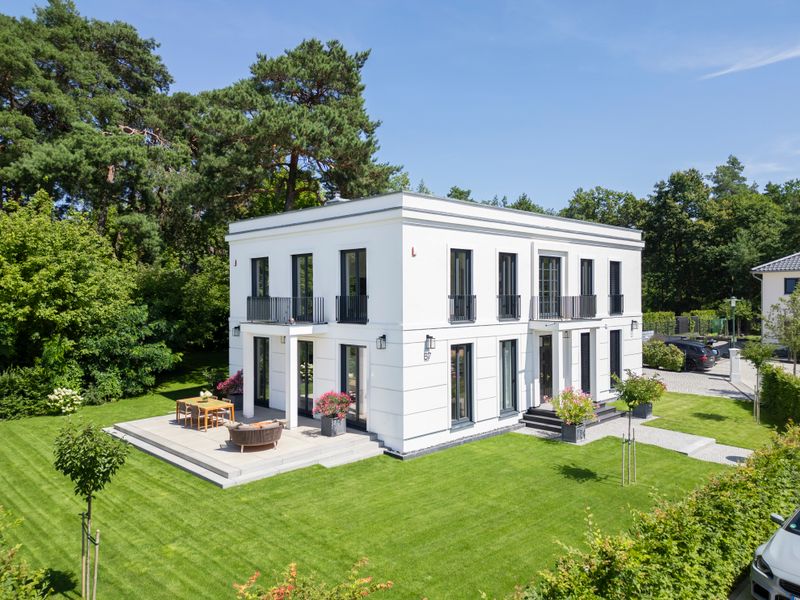
Forward-looking building refurbishment: The path to energy efficiency
With the "Fit for 55 Package", the EU has set the target of reducing CO₂ emissions by at least 55% by 2030. On 1 January 2024, the Building Energy Act (GEG) came into force in Germany as part of these measures.
In view of rising energy costs and increasing awareness of climate change, the energy modernisation of buildings is becoming more and more important - and not just from a political perspective. But why is it worth investing in sustainable modernisation? What legal requirements need to be taken into account and what funding opportunities are available? In this article, we provide a comprehensive overview of the most important aspects of energy efficiency in buildings, particularly in Brandenburg.
Obligatory refurbishment & Building Energy Act 2024
The European Union has adopted a new directive on mandatory refurbishment, which obliges member states to achieve a virtually climate-neutral building stock by 2050. This regulation also includes the energy-efficient refurbishment of existing buildings. In Germany, homeowners must fulfil strict energy efficiency requirements for extensive renovations that affect more than 10% of a building component in order to reduce CO₂ emissions and lower energy costs.
The revised Building Energy Act (GEG) has been in force since January 2024, bringing far-reaching changes for the building sector. The new law requires stricter energy efficiency standards for both new buildings and the refurbishment of existing buildings in order to support Germany's climate targets. In particular, the use of renewable energies will be increasingly promoted and the switch to more environmentally friendly heating systems will be driven forward. These measures are intended to significantly reduce greenhouse gas emissions in the building sector. Find out more about the new regulations and discover how you can benefit from them.
Examples of energy-efficient refurbishments

Energy efficiency as a value factor
Properties that impress with their energy efficiency are not only characterised by lower operating costs, but often also achieve higher sales prices. The reason for this is that modern, energy-efficient buildings offer both environmentally friendly and economic benefits. The energy performance certificate plays a decisive role in the valuation of such properties.
"Properties with a high level of energy efficiency not only noticeably increase their market value. As the owner, you also make a valuable contribution to sustainability. So this is a topic that is worth investing in!" Jan-Hendrik Scherz, Member of the Executive Board & Head of Residential Property Sales
Energy-efficient properties from our portfolio
The customised renovation plan
A customised renovation plan helps homeowners to systematically plan and implement the steps required to increase energy efficiency. Both technical options and financial considerations should be taken into account. It is advisable to consult an energy consultant who will analyse the specific characteristics of the building and develop a customised renovation plan.
The future of energy renovation will lie in the successful combination of well thought-out legislation, technological advances and customisation to transform the building sector in a sustainable way.
Selected sustainable properties

Legal requirements & innovative solutions
To summarise, it can be said that the legal requirements for energy-efficient refurbishment set ambitious targets and often raise the question of how practicable these are for different types of buildings and owners. Not all properties can easily be brought up to the required standards, and the financial and structural challenges can be considerable. Nevertheless, the long-term benefits are clear: energy-efficient buildings are more environmentally friendly and offer economic advantages for the future. Technological innovation will play a key role in developing sustainable yet realisable solutions that both meet legal requirements and increase the market value of properties.



.jpg.jpg)









